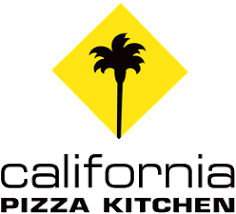Mellow Mushroom Franchise in 2025: Costs, Fee & FDD
Discover whether Mellow Mushroom is the right investment for you! Dive into our detailed analysis of costs, fees, and franchise performance to see if this vibrant pizza brand aligns with your business goals.
Table of Contents:
Mellow Mushroom is a vibrant and quirky pizza franchise that began its journey in 1974, founded by three college friends in Atlanta, Georgia. Their vision was to create a space where people could enjoy hand-tossed, stone-baked pizzas with unique and bold flavors. Mellow Mushroom quickly became more than just a pizza place; it became a community hub with a laid-back, psychedelic vibe. Over the years, the brand has carved out a niche in the crowded pizza industry, known for its creative, art-inspired atmosphere and commitment to high-quality ingredients.
At the heart of Mellow Mushroom’s menu are their signature stone-baked pizzas, crafted with a secret dough recipe that gives them their distinctive chewy, yet crispy crust. While pizza is the star of the show, Mellow Mushroom also offers a variety of other dishes, including calzones, hoagies, and salads, catering to a broad audience from pizza lovers to those looking for something lighter. Their core market consists of families, college students, and young professionals who appreciate both the quality of the food and the eclectic environment that Mellow Mushroom provides. The brand also taps into the craft beer scene, offering a diverse selection of local and regional brews that complement their menu.
Mellow Mushroom has grown significantly since its humble beginnings. The franchise now boasts over 170 locations across 21 states in the U.S., making it a prominent player in the full-service restaurant sector. Each location is designed with a unique aesthetic, reflecting the local culture and art scene, which helps maintain a strong community connection. The franchise serves thousands of customers daily, who are drawn not only by the food but also by the experience that Mellow Mushroom offers—a mix of delicious meals, vibrant art, and a welcoming atmosphere.
As a franchisee, you can expect robust support from Mellow Mushroom’s corporate team. The franchise offers extensive training programs, covering everything from day-to-day operations to marketing and customer service. New franchisees benefit from a thorough onboarding process, including hands-on training at an existing location, followed by continued support as they establish their restaurant. Mellow Mushroom also provides ongoing marketing assistance, access to proprietary recipes, and a well-established supply chain to ensure that franchisees have everything they need to succeed. The brand’s commitment to quality and innovation ensures that Mellow Mushroom continues to thrive in a competitive market, making it an attractive option for potential franchisees.
Mellow Mushroom Franchise Insights
- Mellow Mushroom was founded in 1975 and began offering franchises in 1987, demonstrating nearly four decades of franchise experience.
- The franchise consistently ranks among the top 400 in the Franchise 500 list, showcasing its stability and strong brand presence in the competitive restaurant industry.
- Mellow Mushroom operates 173 locations in the U.S., with 169 of those being franchised units, indicating a strong preference for franchisee-led growth.
- Each Mellow Mushroom location features custom artwork and design elements, making no two restaurants alike, which adds to the brand’s appeal and customer experience.
Mellow Mushroom Franchise Key indicators
Growth YOY (%)
-2%
vs industry 0%
Total U.S. Franchised Units
169
3-Year Failure Rate
17%
vs industry 10%
Sales-to-Investment ratio
1.1:1
How much does it cost to open a Mellow Mushroom franchise?
Understanding the potential investment size and capital requirements is crucial when considering opening a Mellow Mushroom franchise. These financial commitments, including initial franchise fees, equipment costs, and ongoing operational expenses, impact the feasibility and profitability of the venture. Thoroughly evaluating these factors ensures that potential franchisees are prepared for the financial responsibilities and can make informed decisions about their ability to sustain and grow the business, ultimately contributing to long-term success.
Min & Max Investment
Opening a Mellow Mushroom franchise involves several key costs, which are outlined in Item 7 of the Franchise Disclosure Document (FDD). You can see a breakdown of the costs to open a Mellow Mushroom below from the most recent Item 7 below:
| Type of Expenditure | Minimum Investment | Maximum Investment |
|---|---|---|
| Initial Franchise Fee | $50,000 | $50,000 |
| Art Package Fee | $28,000 | $38,500 |
| Architectural Fee | $75,000 | $115,000 |
| One Month's Rent | $10,000 | $21,500 |
| Security Deposit | $10,000 | $21,500 |
| Retail Merchandise Display (including Inventory) | $0 | $18,000 |
| Equipment | $280,000 | $350,000 |
| Leasehold Improvements | $750,000 | $1,400,000 |
| Signage | $40,000 | $70,000 |
| Opening Inventory | $55,000 | $78,000 |
| Small Wares | $28,000 | $35,000 |
| Pre-Opening Labor and Training Expenses | $95,000 | $105,000 |
| Insurance | $5,000 | $8,000 |
| Furniture | $85,000 | $130,000 |
| POS System and other Back-Office Technology System | $30,000 | $50,000 |
| Audio-Visual Equipment | $40,000 | $80,000 |
| Miscellaneous Opening Costs | $15,000 | $17,500 |
| Additional Funds - 3 months | $50,000 | $50,000 |
| Total Estimated Initial Investment | $1,646,000 | $2,638,000 |
Item 7 in the Franchise Disclosure Document (FDD) is the “Estimated Initial Investment” section. It outlines the total costs a franchisee can expect to incur when starting a franchise, including the initial franchise fee, equipment, inventory, real estate, and other startup expenses. This section is crucial because it provides potential franchisees with a detailed understanding of the financial commitment required, helping them assess affordability and plan their investment strategy effectively.
Required Capital
To open a Mellow Mushroom franchise, the required capital involves both the initial investment costs and a net worth requirement set by Mellow Mushroom. Let’s take a closer look below:
- Initial Investment As shown above, the total estimated initial investment ranges from $1.65 million to $2.64 million. This includes all the startup costs such as the franchise fee, real estate, construction, equipment, initial inventory, and additional funds for initial operating expenses. Assuming that you will finance your franchise investment, you should plan to have 20% of the total investment amount in the form of equity (cash) for the investment.
- Liquid Assets Requirement $368,800. This is the minimum amount of liquid assets you’ll need to open a Mellow Mushroom franchise.
- Net Worth Requirement While specific figures aren’t provided, for a franchise with an investment range between $1.65 million and $2.44 million, it’s typical in the industry to require a net worth of at least $1.5 million to $2 million. This is an estimate based on similar full-service restaurant franchises.
How much does a Mellow Mushroom franchise owner make?
Calculating the salary of a Mellow Mushroom franchise owner involves analyzing gross sales to determine total revenue, assessing operational efficiency to understand profit margins, and accounting for franchisor fees and additional expenses such as rent, utilities, and payroll. Effective management of these factors can significantly impact the profitability and financial success of a Mellow Mushroom franchise owner. This comprehensive financial analysis helps estimate net profits, from which the owner’s salary can be derived. A clear understanding of these factors ensures accurate salary projections and financial planning for sustainable business operations.
Mellow Mushroom Revenue & Gross Sales
Mellow Mushroom does not provide an Item 19 in their Franchise Disclosure Document (FDD), which means they do not disclose financial performance representations, including median gross sales figures, to potential franchisees. This lack of disclosure can make it challenging to obtain precise figures for median gross sales.
However, it’s worth noting that Mellow Mushroom is a well-established brand with a strong customer base, particularly in regions where its quirky, community-oriented vibe resonates. Franchisees typically benefit from the brand’s loyal following, creative menu, and unique restaurant atmosphere, which contribute to steady sales. That being said, prospective franchisees are encouraged to conduct thorough due diligence, possibly by speaking with existing franchisees to get a better sense of potential financial performance.
Which key factors impact the average revenue performance of Mellow Mushroom franchisees?
The performance of U.S. franchisee median gross sales for Mellow Mushroom is likely influenced by several key factors. Firstly, the brand’s strong post-pandemic recovery, driven by a return to in-person dining, has positively impacted sales. Additionally, Mellow Mushroom’s focus on unique, high-quality ingredients and its ability to create a memorable dining experience have likely sustained customer loyalty. Economic factors, such as inflation and rising food costs, may have put pressure on profit margins, but the brand’s ability to adapt with menu pricing strategies and operational efficiencies could have mitigated these impacts. Lastly, the continued expansion into new markets and the increasing popularity of delivery and takeout services have likely contributed to steady or improved sales performance compared to the prior year.
Mellow Mushroom Franchise Operational Costs
When opening a Mellow Mushroom franchise, key ongoing operational costs you should consider include:
- Labor Costs Employee wages, benefits, and payroll taxes will likely be one of your largest ongoing expenses. The cost can vary depending on your location and the local minimum wage.
- Food and Beverage Costs Maintaining a consistent supply of high-quality ingredients, especially given Mellow Mushroom’s emphasis on fresh, premium products, will be a significant part of your ongoing costs. This also includes managing waste and spoilage.
- Utilities and Maintenance The cost of utilities (electricity, gas, water) and regular maintenance for kitchen equipment, HVAC systems, and the unique décor elements will be an ongoing consideration.
- Lease or Mortgage Payments The cost of renting or purchasing your restaurant location will be a significant ongoing expense. This also includes property taxes, insurance, and potential renovations.
- Inventory Management Regularly replenishing inventory, including not just food items but also beverages, packaging, and other operational supplies, will be essential to maintaining smooth operations.
- Technology and POS Systems Costs related to maintaining and updating point-of-sale systems, online ordering platforms, and other technology infrastructure that supports operations and customer service.
These costs will vary based on your specific location, the size of your restaurant, and other market factors.
Mellow Mushroom Franchise Fees
When considering the ongoing fees associated with operating a Mellow Mushroom franchise, it’s essential to understand the specific costs that will impact your business on a regular basis. Here are some key fees based on the provided data:
- Royalty Fee Mellow Mushroom charges a royalty fee of 5% of the restaurant’s weekly gross sales. This fee is due by Friday of each week for sales generated during the prior week.
- Brand Development Fund Fee Franchisees contribute up to 3% (currently set at 2%) of their weekly gross sales to the Brand Development Fund. This fee supports marketing and brand initiatives and is also due by Friday of each week.
- Advertising Cooperative Fee The fee for the advertising cooperative is determined by a vote of the cooperative members. The specifics of this fee can vary depending on the decisions made by the group.
- Potential Additional Fees Beyond these standard fees, there may be additional costs or assessments related to specific marketing efforts, technology updates, or other operational needs as dictated by the franchise agreement.
Understanding these ongoing fees is crucial for managing the financial health of your Mellow Mushroom franchise and ensuring that you are prepared for the various expenses associated with operating within this system.
Mellow Mushroom Franchise Earnings
The median gross sales for Mellow Mushroom franchises are not publicly disclosed and can vary based on location, market conditions, and individual store performance. Conducting detailed due diligence, including speaking with existing franchisees, will provide a more accurate financial outlook.
How to Open a Mellow Mushroom Franchise
Becoming a Mellow Mushroom franchisee involves several key steps, starting from the initial inquiry to the grand opening of your restaurant:
- Initial Inquiry You or your franchise specialist submits an initial inquiry basic information about your interest and background. You should also conduct thorough research on the franchise, including seeing all of the information available on the Vetted Biz franchise intelligence platform, including access to the most recent Franchise Disclosure Document (FDD).
- Application and Evaluation If you’re interested in moving forward, you’ll complete a franchise application, which includes details about your financial status, experience, and goals. The franchisor will review your application to ensure you meet their qualifications, including net worth and liquid assets.
- Discovery Day You may be invited to a Discovery Day at Mellow Mushroom’s headquarters in Atlanta, GA, where you’ll meet the corporate team, tour existing locations, and gain deeper insights into the business. This is also an opportunity for the franchisor to evaluate you as a potential partner.
- Franchise Agreement If both parties are ready to proceed, you’ll sign the franchise agreement, officially becoming a Mellow Mushroom franchisee. At this point, you’ll also pay the initial franchise fee.
- Site Selection and Lease Negotiation With the support of the franchisor, you’ll begin the process of selecting a suitable location for your restaurant. This includes conducting market research, negotiating lease terms, and ensuring the site meets all operational requirements.
- Training Before opening, you’ll undergo extensive training provided by Mellow Mushroom. This includes hands-on experience at an existing location and training on all aspects of running the business, from operations to marketing and customer service.
- Build-Out and Pre-Opening The construction and design of your restaurant will take place, following the brand’s specifications. You’ll also work on hiring staff, securing inventory, and finalizing your marketing plan for the grand opening.
- Grand Opening Once construction is complete and you’ve passed all inspections, you’ll open your Mellow Mushroom restaurant to the public. The franchisor typically offers ongoing support during this critical phase to ensure a successful launch.
Pros & Cons
Pros
Strong Brand Identity: Mellow Mushroom is known for its unique, art-inspired atmosphere and high-quality, stone-baked pizzas, which set it apart in the crowded full-service restaurant market.
Loyal Customer Base: The brand has a dedicated following, particularly among families, college students, and young professionals who appreciate its quirky, community-oriented vibe.
Creative Freedom: Each Mellow Mushroom location is designed with local culture and art in mind, allowing for some level of creative expression while still adhering to the brand’s standards.
Cons
Competitive Market: The restaurant industry, particularly the pizza segment, is highly competitive, with many well-established brands vying for customer attention, which could impact market share and profitability.
Complex Build-Out Requirements: Mellow Mushroom’s unique, art-driven design can lead to higher construction and design costs, as well as longer build-out times compared to more standardized franchise concepts.
Limited Financial Transparency: The absence of an Item 19 in the FDD means you won’t have access to detailed financial performance data, making it harder to predict potential earnings.




